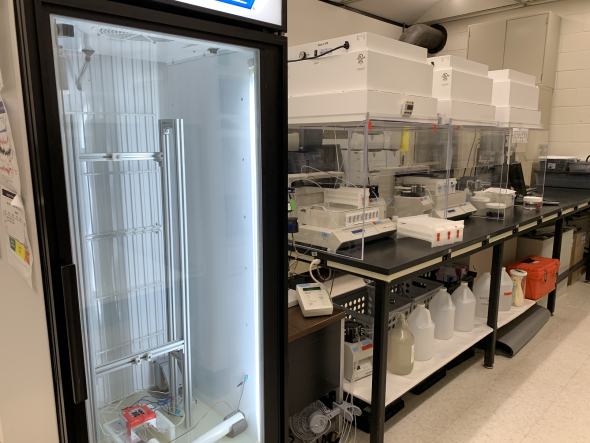
Pursuing Independent Research at Dartmouth
Dartmouth offers unprecedented opportunities to conduct your own research and to connect with faculty who are masters in their field of study. Before I even stepped foot on Dartmouth's campus, I was eager to get involved with research in the Earth Science department, and it was very easy for me to do so. I connected with my now faculty advisor, and we worked together to help me figure out what research I was interested in and what funding would be the best for me. "Research" can be a fairly vague term, so I'd like to clear up some confusion and offer you some resources below:
What is Research?
Research at any institution can mean a lot of different things, and it's especially unique at Dartmouth. It can range anywhere from wearing a lab coat in a scientific lab using pipets to working on a computer screen with numbers and code. I've participated in research on both sides of the spectrum; I've worked on melting ice cores in an earth science laboratory to exploring my own research by reading relevant journal articles.

How do I Get Paid?
Just as there are different ways to do research, there are certainly different ways of getting paid to do the research. Some research positions (like mine in the ice core lab) are hourly positions – just like many other jobs out there. However, some research positions offer stipends for your research. A stipend is a sort of lump-sum payment that the department disburses to you prior to the research and then another stipend after the research (to confirm you conducted it).
How do I Get Involved in Research?
There are plenty of ways to get involved in research at Dartmouth, and it's tremendously easy to do so. If you're interested in investigating the kind of research that you would like to do, I would highly suggest looking into different faculty profiles at Dartmouth to see what research professors are doing. That's how I got in contact with my faculty mentor! You should reach out to said professors and schedule a meeting with them to see if you'd be a good fit for the research. If not, then no worries; there's no harm done. If it's a match, then congrats! You're on another journey!
A Case Study – My Involvement in Research
The very first independent research project I undertook was under the supervision of my faculty mentor through the Irving Institute's (the energy institute at Dartmouth) program to support research centered around energy. This opportunity gave me $1,000 to conduct my independent research throughout the 10-week term. I also got involved in Dartmouth's Ice Core Laboratory where I helped melt the ice cores and perform data analysis to analyze their composition. From there, I worked with my faculty mentor again to perform independent research under the "Undergraduate Research Assistantships at Dartmouth" (URAD) program. This program allows students to secure funding for all kinds of independent research they might want to take on under a faculty mentor. These are all programs to support research during a term that you are on campus and taking courses, but there are plenty of funding resources for you to pursue research during your off term as well! There are so many opportunities for research anywhere from public policy to energy to your own niche research interests!



















